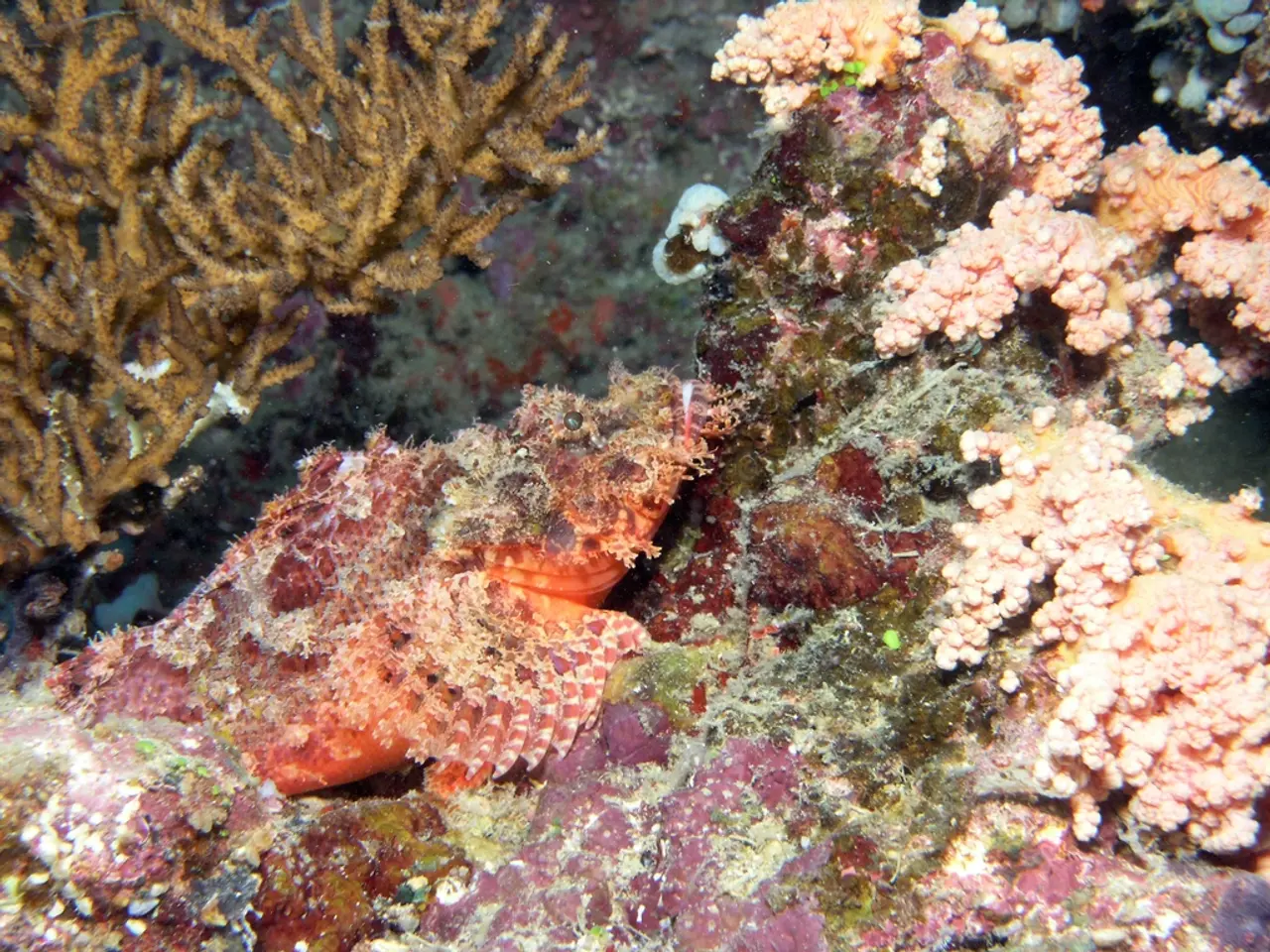Impacts of Seaweed on Neutralizing Ocean Acidification
In the vast expanse of our oceans, one humble plant has taken on a significant role in safeguarding marine ecosystems: seaweed. This simple aquatic plant, often overlooked, is proving to be a powerful ally in the fight against climate change and the preservation of our oceans.
Healthy marine environments are the lifeblood of fish and other marine life, relying on stable conditions to thrive. Seaweed plays a key role in maintaining these healthy conditions by contributing to carbon sequestration and reducing acidity levels in the water.
Seaweed farming, a sustainable practice, can absorb carbon dioxide during photosynthesis, helping combat climate change. This process not only benefits the atmosphere but also aids in mitigating the impacts of harmful algal blooms, which can occur due to nutrient overloads in our waters.
Sustainable seaweed farming also bolsters marine ecosystems and protects coastlines. By providing a natural solution to ocean acidification and algal blooms, it fosters a healthier environment for various marine species.
The European Marine Biological Resource Centre (EMBRC) has started research projects on the use of seaweed for carbon sequestration, further emphasising its importance. Coastal habitats like mangroves, seagrasses, and salt marshes, which play important roles in carbon sequestration, are vital for the health of marine ecosystems.
However, climate change poses threats to seaweed, negatively affecting their growth and reproduction. As CO2 is absorbed by ocean waters, it forms carbonic acid, lowering the pH balance and creating more acidic conditions. This acidification is a pressing environmental issue threatening marine ecosystems and disrupting the pH balance.
Declining seaweed populations can lead to serious consequences, including disruptions in nutrient cycling and the pH balance in coastal waters. Sustainable farming methods are crucial for the future of marine ecosystems, ensuring healthy growth and promoting biodiversity.
Seaweed supports various forms of marine life, providing shelter and food for numerous species. It also helps reduce the likelihood of harmful algal blooms by supporting nutrient cycling in coastal environments.
Cultivating seaweed fosters renewable energy production through biofuels, contributing to carbon reduction efforts. Community involvement, education, and policy implications are essential for the protection and conservation of marine ecosystems.
Ocean health is crucial for the planet's well-being, influencing weather patterns, supporting life, and providing resources for many communities. By embracing sustainable seaweed farming, we can not only protect our oceans but also provide an alternative income for coastal communities while promoting ocean health.
In conclusion, seaweed, this humble marine plant, is proving to be a powerful ally in our fight for a healthier, more sustainable ocean. Through sustainable farming practices, we can harness its potential to combat climate change, protect marine ecosystems, and foster renewable energy production. The future of our oceans depends on our commitment to sustainable practices like seaweed farming.
Read also:
- Trump's SNAP reductions and New York City Council's grocery delivery legislation: Problems for city residents highlighted
- Reducing dental expenses for elderlies in Sweden: Over 50% cut in charges for pensioners by the government
- Forty-year-old diet: A list of meal choices to savor
- Exiled Life's Conundrum: A Blend of Liberation, Disillusionment, and Distress






